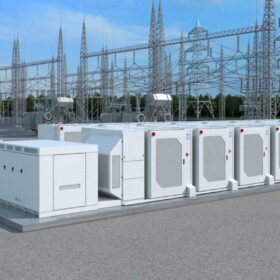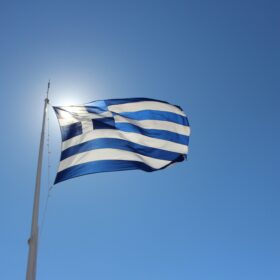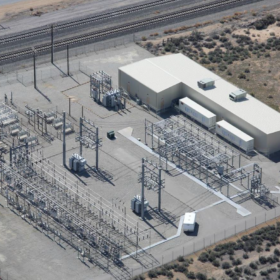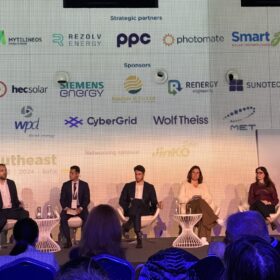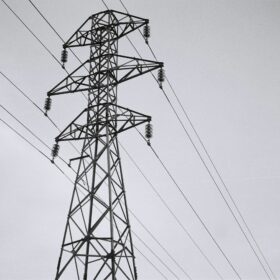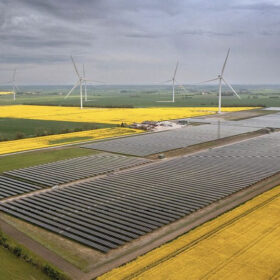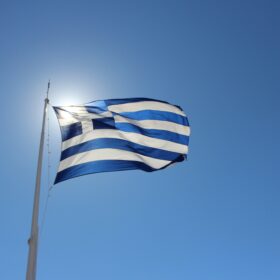Greece readies for next battery storage growth phase
Greece’s energy storage market is hot with a number of new policies paving the way to new applications in the market. The government is now working a new plan, which will allow the colocation of batteries with existing solar plants as well as standalone, in front of the meter battery energy storage systems.
Bulgaria’s battery storage market gears up
Bulgaria has installed between 40 MWh and 50 MWh battery energy storage capacity to date. However, a new national legislation as well as funds provided through the European Union’s Recovery and Resilience Facility could see the country install another 1 GWh over the next two years.
Masdar buys out Greece’s Terna Energy in €3.2 billion deal
Masdar has agreed to acquire initially 67% of Greece’s Terna Energy, a developer of clean energy infrastructure, in a €3.2 billion ($3.4 billion) deal.
Greece shuns net metering
A recent law voted by Greece’s Parliament has closed the net metering scheme to the vast majority of electricity users. The government aims to replace it with a net billing scheme, which the photovoltaic sector has been waiting for more than a year.
Greece adds storage to solar tenders
The Greek parliament has approved a new law introducing renewable energy policies for auction design and small projects with stable feed-in tariffs.
Key takeaways from Bulgaria’s RE-Source Southeast Conference
The first day of the RE-Source Southeast Conference in Sofia, Bulgaria, this week underscored European and regional interest in renewable-energy projects based on corporate power purchase agreements (PPAs). Negative or very low electricity prices in European electricity markets affect the appetite for such projects, but the solution for investors and policymakers is to approach the issue systematically.
Greece’s solar curtailment starts to bite
Greece added 1.59 GW of new solar capacity last year, and projections for the current year look strong. Curtailment remains the sector’s thorniest issue, however.
Attica-Crete leg of Mediterranean super grid due mid 2025
Greece has grand plans for an interconnector network that runs from the Middle East through to the heart of Europe. pv magazine examines the latest developments on the road to a Mediterranean super grid and what it might mean for the regions involved.
Greece’s 2023 PV additions hit 1.59 GW
Greece installed 1.59 GW of solar in 2023, bringing the country’s cumulative PV capacity to 7.1 GW by the end of December.
Israel’s new PV installations hit 1.1 GW in 2023
Official data from the Electricity Authority of Israel show that the country installed 1,108 MW of new solar capacity in 2023. Renewable energy covered 12.5% of Israel’s electricity demand last year.
